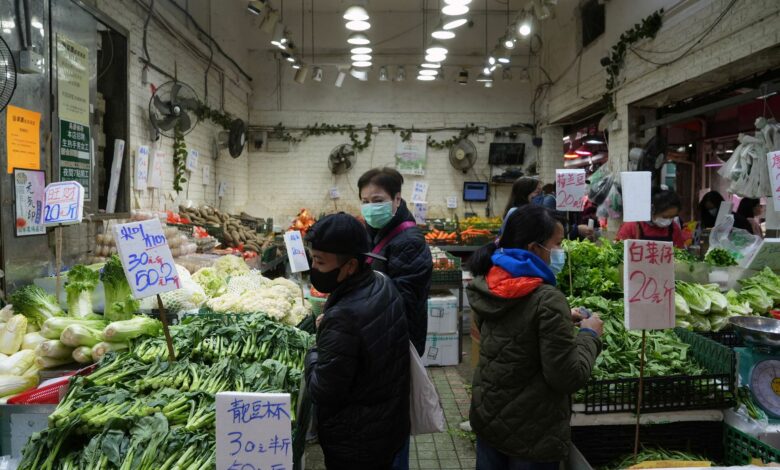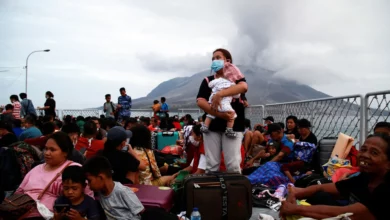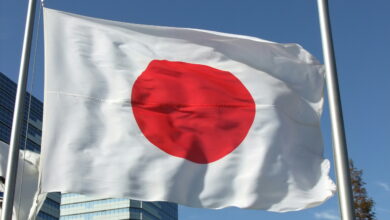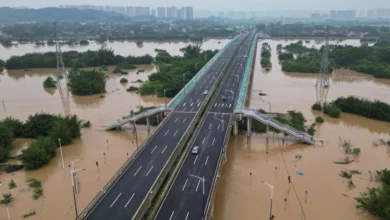
HONG KONG, Feb 8 (Reuters) – Supplies of vegetables were running low in Hong Kong on Tuesday, with shoppers scrambling to buy whatever they could find, as the government blamed a resurgence of COVID-19 for a drop in deliveries of fresh produce from the mainland.
Leader Carrie Lam was due to announce further COVID restrictions later in the day after the city reported a record of more than 600 new cases on Monday. Broadcaster TVB said there were at least 380 confirmed infections on Tuesday with 400 preliminary positive tests.
Addressing a weekly news briefing, Lam said vegetable deliveries from across the border were down as a result of truck drivers testing positive for the virus, but she did not offer any specific solutions to solve the shortage. read more
Shelves stocking vegetables were bare across many supermarkets in the city while crowds surged into fresh markets to snap up the limited produce available. Other food remained available.
At a market in the city’s downtown Wan Chai market on Tuesday morning, a staff member from Qiandama vegetable store, shouted to crowds not to enter.
“No more veggies inside…It’s like the battlefield,” she said as people tried to charge in.
Some vegetable and fruit stalls selling mainland Chinese produce were shuttered while others were selling produce at double their usual prices.
For now, Lam said, the best option was to adhere to the “dynamic zero” strategy employed by mainland China to suppress all coronavirus outbreaks as soon as possible.
The official Chinese Communist Party newspaper, the People’s Daily, had encouraged Hong Kong to follow China’s approach to containing the virus in an editorial on Monday.
“We should contain the spread of the virus as much and as fast as possible,” Lam said.
ISOLATED
Hong Kong’s stringent coronavirus policies have turned the once top global travel and business hub into one of the world’s most isolated major cities.
The economic and psychological toll from the hardline approach are rapidly rising, with measures becoming more draconian than those first implemented at the start of the pandemic in 2020.
Flights are down around 90%, schools, playgrounds, gyms as well as most other venues are shut. Restaurants close at 6 p.m. (1000 GMT), while most people, including the majority of civil servants, are working from home.
Government quarantine facilities are also nearing their maximum as authorities struggle to keep up with their rigid contact tracing scheme.
Many health experts have said the current strategy of shutting itself off as the rest of the world shifts to living with coronavirus, is unsustainable. read more
Doctors say mental health is suffering, particularly in families where people are earning less, or children cannot go to school due to the restrictions.
Reporting by Joyce Zhou, Marius Zaharia, Donny Kwok and Anne Marie Roantree; Writing by Farah Master; Editing by Simon Cameron-Moore




